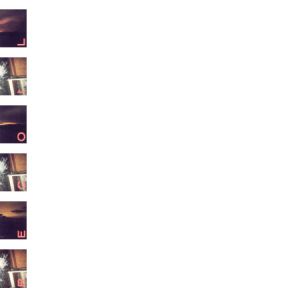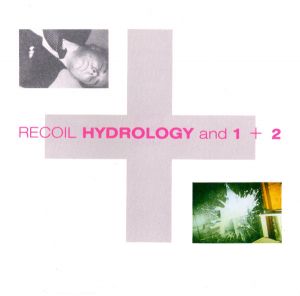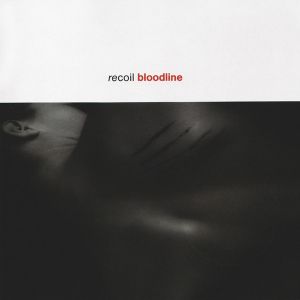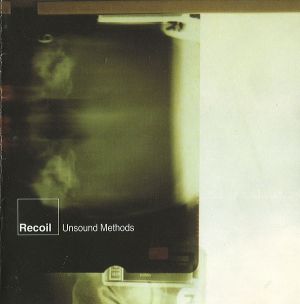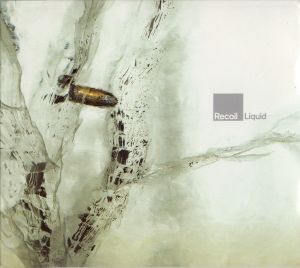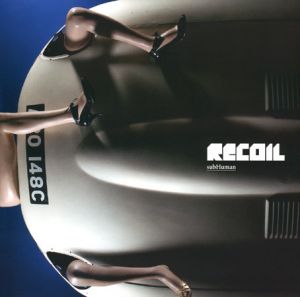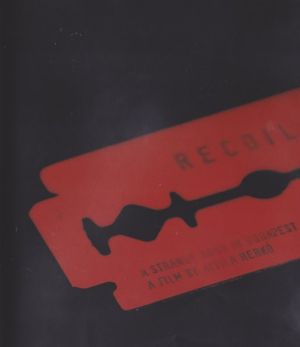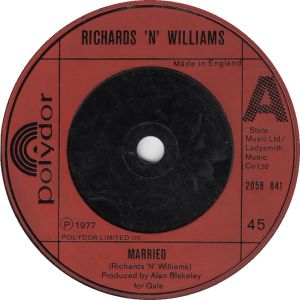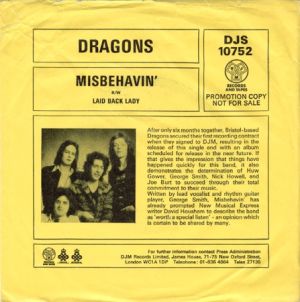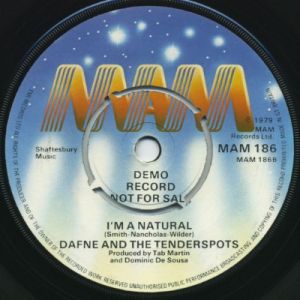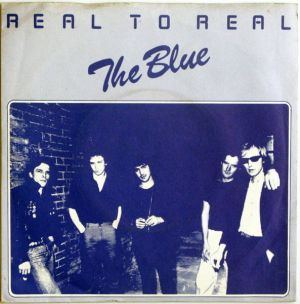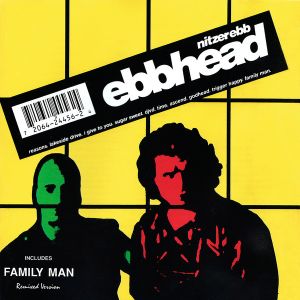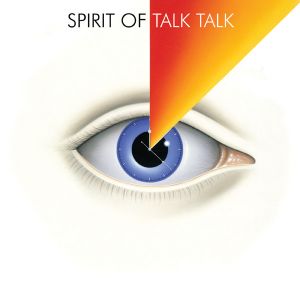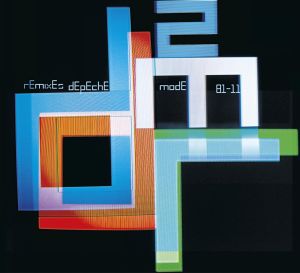|
|
| (66 intermediate revisions by the same user not shown) |
| Line 1: |
Line 1: |
| | :''This article is about the various sample sources used on [[Recoil]] [[:Category:Recoil songs|songs]] and official remixes. For sample sources used on [[Depeche Mode]] works, see [[Depeche Mode sample sources]]. For sample sources used on [[Martin Gore]] works, see [[List of Martin Gore sample sources by album]]. For sample sources in the live arrangements of [[Depeche Mode]] [[:Category:Depeche Mode songs|songs]] as they were performed on the various concert tours undertaken by the group, see [[List of Depeche Mode live sample sources by tour]].'' |
| | |
| In audio production, '''sampling''' refers to the use of a portion (or sample) from a sound within another recording. During [[Alan Wilder|Alan Wilder's]] tenure with the group, [[Depeche Mode]] were among the most prolific acts to make use of {{EL|https://en.wikipedia.org/wiki/Sampling_(music) sampling}} technology within a traditional {{EL|https://en.wikipedia.org/wiki/Pop_music pop music}} format. Following his [[1995-06-01_Alan_Wilder_departure_from_Depeche_Mode|departure]] from Depeche Mode in 1995, Wilder would continue to employ sampling as a means to enhance the atmosphere of his music through the [[Recoil]] project, including passages of contemporary music, film soundtracks, sample library audio, and samples from his past work with Depeche Mode. The analysis of these '''sample sources''' and how they are manipulated is a popular topic of discussion amongst fans of both groups. | | In audio production, '''sampling''' refers to the use of a portion (or sample) from a sound within another recording. During [[Alan Wilder|Alan Wilder's]] tenure with the group, [[Depeche Mode]] were among the most prolific acts to make use of {{EL|https://en.wikipedia.org/wiki/Sampling_(music) sampling}} technology within a traditional {{EL|https://en.wikipedia.org/wiki/Pop_music pop music}} format. Following his [[1995-06-01_Alan_Wilder_departure_from_Depeche_Mode|departure]] from Depeche Mode in 1995, Wilder would continue to employ sampling as a means to enhance the atmosphere of his music through the [[Recoil]] project, including passages of contemporary music, film soundtracks, sample library audio, and samples from his past work with Depeche Mode. The analysis of these '''sample sources''' and how they are manipulated is a popular topic of discussion amongst fans of both groups. |
|
| |
|
| Line 17: |
Line 19: |
| As ever, if you notice an error, wish to contribute or request the removal of information contained within this article, please feel free to [mailto: [email protected] contact us]. | | As ever, if you notice an error, wish to contribute or request the removal of information contained within this article, please feel free to [mailto: [email protected] contact us]. |
|
| |
|
| = <i>[[1 + 2]]</i> (1986) = | | = Studio albums = |
| | |
| {{Sample source
| |
| |song={{S|1}} & {{S|2}}
| |
| |artist=[[Recoil]]
| |
| |releaseyear=1986
| |
| |ssample1=N/A
| |
| |ssource1='''Depeche Mode – "[[Any Second Now]]" (Altered)''' - 1981
| |
| |sstatus1=C
| |
| |ssample2=N/A
| |
| |ssource2='''Depeche Mode – "[[If You Want]]"''' - 1984
| |
| |sstatus2=C
| |
| |ssample3=N/A
| |
| |ssource3='''Depeche Mode – "[[The Sun & The Rainfall]]"''' - 1982
| |
| |sstatus3=C
| |
| |ssample4=N/A
| |
| |ssource4='''Depeche Mode – "[[Oberkorn (It's A Small Town)]]"''' - 1982
| |
| |sstatus4=C
| |
| |ssample5=N/A
| |
| |ssource5='''Depeche Mode – "[[The Great Outdoors]]"''' - 1983
| |
| |sstatus5=C
| |
| |ssample6=N/A
| |
| |ssource6='''Depeche Mode – "[[Shouldn't Have Done That]]"''' - 1982
| |
| |sstatus6=C
| |
| |ssample7=N/A
| |
| |ssource7='''Depeche Mode – "[[Tora! Tora! Tora!]]"''' - 1981
| |
| |sstatus7=C
| |
| |ssample8=N/A
| |
| |ssource8='''Depeche Mode – "[[Shake The Disease]]" (Edit the Shake)''' - 1985
| |
| |sstatus8=C
| |
| |ssample9=N/A
| |
| |ssource9='''Depeche Mode – "[[Pipeline]]"''' - 1983
| |
| |sstatus9=C
| |
| |ssample10=N/A
| |
| |ssource10='''Depeche Mode – "[[Blasphemous Rumours]]"''' - 1984
| |
| |sstatus10=C
| |
| |ssample11=N/A
| |
| |ssource11='''Kraftwerk – "Radioaktivität"''' - 1975
| |
| |sstatus11=UC
| |
| |ssample12=N/A
| |
| |ssource12='''Kraftwerk – "Uran"''' - 1975
| |
| |sstatus12=UC
| |
| |ssample13=N/A
| |
| |ssource13='''Kraftwerk – "Radioland"''' - 1975
| |
| |sstatus13=UC
| |
| |ssample14=N/A
| |
| |ssource14='''Duet Emmo – "Or So It Seems"''' - 1983
| |
| |sstatus14=UC
| |
| |ssample15=N/A
| |
| |ssource15='''Duet Emmo – "Heart of Hearts"''' - 1983
| |
| |sstatus15=UC
| |
| |ssample16=N/A
| |
| |ssource16='''The Hitmen – "Shade in, fade out"''' - 1981
| |
| |sstatus16=UC
| |
| |ssample17=N/A
| |
| |ssource17='''Hard Corps - "Je Suis Passée"''' - 1985
| |
| |sstatus17=UC
| |
| |snumberofrows=17
| |
| |sround=1
| |
| |colorscheme=1+2
| |
| }}
| |
|
| |
|
| = <i>[[Hydrology]]</i> (1988) =
| | {{Sample source album preview |
| == {{S|Grain}} ==
| | |albumpage=[[1 + 2]] |
| {{Sample source | | |year=1986 |
| |song={{S|Grain}} | | |file=Album1+2.jpg |
| |artist=[[Recoil]]
| | |link=[[List of Recoil sample sources by album/1 + 2]] |
| |releaseyear=1988 | | |text={{main|List of Recoil sample sources by album/1 + 2|List of Recoil sample sources by album/1 + 2}} |
| |smsample1=Bell-like outro "ping" | | |size=100px |
| |smsnotes1=In May 2020, fan "DMK" kindly provided DM Live Wiki with documentation for a series of {{EL|http://www.vintagesynth.com/emu/emulator2.php Emulator II}} {{EL|https://en.wikipedia.org/wiki/Floppy_disk floppy disks}} that accompanied a collection of restored studio equipment used by ''[[Music For The Masses]]'' producer [[Dave Bascombe]] during the production of music albums for artists other than [[Depeche Mode]] in the mid to late eighties. One floppy disk, labeled "Wineglass (106)", features an untitled preset ("NULL PRESET"), which contains a bell-like sample, presumably the sound of a wine glass being tapped. This sample is played sporadically throughout the orchestral outro of "Grain". Notably, this sound is also used in {{S|Strangelove}}, {{S|Never Let Me Down Again}}, {{S|Behind The Wheel}}, and {{S|Route 66}}. | |
| |smsnumberofrows=1
| |
| |colorscheme=Hydrology
| |
| }}
| |
| == {{S|Stone}} ==
| |
| {{Sample source
| |
| |song={{S|Stone}}
| |
| |artist=[[Recoil]]
| |
| |releaseyear=1988 | |
| |ssample1=French vocal sample
| |
| |ssource1='''French train announcer, unidentified source'''
| |
| |sstatus1=OC
| |
| |snotes1=Wilder confirmed in a Q&A on {{Shunt}}, the official [[Recoil]] website that {{S|Stone}} employs a vocal sample of a French train station announcer, but is unsure of its origin.<ref>Source: [http://www.recoil.co.uk/evidence/qa-vault/qa-recoil/qa-recoil-1-2-hydrology/ Shunt Q&A: ARCHIVES : Recoil : 1 + 2 / HYDROLOGY]</ref> The announcer says: "Attention! Attention! Quai n°5, départ imminent du Nord-Express à destination de Moscou [...]"
| |
| |snumberofrows=1
| |
| |sround=1
| |
| |colorscheme=Hydrology | |
| }} | | }} |
| == {{S|The Sermon}} ==
| | {{Sample source album preview |
| {{Sample source with audio | | |albumpage=[[Hydrology]] |
| |song={{S|The Sermon}} | | |year=1988 |
| |artist=[[Recoil]]
| | |file=AlbumHydrology.jpg |
| |releaseyear=1988 | | |link=[[List of Recoil sample sources by album/Hydrology]] |
| |smsample1=Polish vocal sample | | |text={{main|List of Recoil sample sources by album/Hydrology|List of Recoil sample sources by album/Hydrology}} |
| |smsnotes1=A vocal sample from a Polish radio broadcast reporting on Pope John Paul II's 9 June 1987 sermon in Warsaw can be heard in the introduction of {{S|The Sermon}}. Wilder commented on the origin of this sample in a 2008 interview for ''komarnicki.pl'': "I put the microphone on the shortwave radio, I tried to catch some climatic samples and that was the first thing that happened. I had no idea what they were saying! I liked the sound but it wasn't meant to be an integral part of the track, just atmosphere."<ref>Sources: [http://lodz.wyborcza.pl/lodz/1,35135,7785079,Byly_czlonek_Depeche_Mode_zagra_w_Lodzi__Wywiad.html Interview with Alan Wilder for Wyborcza Poland, 2010-04-19] + [https://komarnicki.pl/interview-alan-wilder-depechemodeforum/ Interview with Alan Wilder for ''devotees.pl'', 2008-02-21]</ref> The two audio samples state: <blockquote> | | |size=100px |
| [...] radcy nuncjatury w Lizbonie, którego Ojciec Święty mianował Pronuncjuszem Apostolskim w Tajla[-ndii...]
| |
| | |
| [...] wzgórze wypełniło się młodzieżą maturalną… oprócz indywidualnych [inaudible] grup kraj przebyły też dwie pielgrzymki diecezjalne. Pierwsza z Archidiecezji Warszawskiej w liczbie około 8 tysięcy młodzieży [...]<ref>Transcribed by Aleksandra Lech for DMLiveWiki on 2019-07-30</ref></blockquote>
| |
| | |
| English Google translation:
| |
| <blockquote>
| |
| [...] counselor of the nunciature in Lisbon, whom the Holy Father appointed as Apostolic Pronunciator in Tajla [Thailand]...
| |
| | |
| [...] the hill was filled with high school graduates ... in addition to individual freelance groups, two diocesan pilgrimages arrived in Prague. The first one, from the Archdiocese of Warsaw, was eight thousand young people strong, and they...
| |
| </blockquote>
| |
| |smsample2=Bass guitar | |
| |smsnotes2=In May 2020, fan "DMK" kindly provided DM Live Wiki with documentation for a series of Emulator II floppy disks that accompanied a collection of restored studio equipment used by ''[[Music For The Masses]]'' co-producer [[Dave Bascombe]] during the production of music albums for artists other than [[Depeche Mode]] in the mid to late 1980s. One floppy disk, labeled "Bright Bass-GTR", features a preset titled "bright bass" that is comprised of two bass guitar samples which are used throughout "The Sermon" starting from approximately the five minute thirty-second mark. Notably, these bass guitar parts are also used during the chorus sections of the album version and throughout the single version of {{S|Strangelove}}.
| |
| | |
| |ssample1=Tribal chanting
| |
| |ssource1='''Charles Duvelle, Jean-Pierre Martin, Jacques M'bilo - ''Musique centrafricaine'' - "Chant Dakpa pour l'Abbatage d'un arbre"''' - 1962
| |
| |sstatus1=C
| |
| |snotes1=A section of audio derived from "Chant Dakpa pour l'Abbatage d'un arbre" as recorded by Charles Duvelle, Jean-Pierre Martin, and Jacques M'bilo for the 1962 {{EL|https://en.wikipedia.org/wiki/Ocora Ocora}} release ''Musique centrafricaine'' is utilised throughout the outro of "The Sermon". | |
| |sexample1=ss-Recoil-Sermon-ChantDapkapourlAbattageDunArbre.mp3
| |
| | |
| |ssample2=Woodwind instrumentation
| |
| |ssource2='''Charles Duvelle, Jean-Pierre Martin, Jacques M'bilo - ''Musique centrafricaine'' - "Musique de chasse Babinga"''' - 1962
| |
| |sstatus2=C
| |
| |snotes2=A section of audio derived from "Musique de chasse Babinga" as recorded by Charles Duvelle, Jean-Pierre Martin, and Jacques M'bilo for the 1962 {{EL|https://en.wikipedia.org/wiki/Ocora Ocora}} release ''Musique centrafricaine'' is utilised throughout the outro of "The Sermon".
| |
| | |
| |ssample3=Snare accent
| |
| |ssource3='''Michael Siegel - ''The Sounds Of The Office'' - "Postage Meter And Enveloppe Sealer"''' - 1964
| |
| |sstatus3=C | |
| |snotes3=A mechanical sound derived from "Postage Meter And Enveloppe Sealer" as featured on the 1964 {{EL|https://en.wikipedia.org/wiki/Folkways_Records Folksways Records}} field recording album ''The Sounds Of The Office''.
| |
| | |
| |ssample4="Buzzy" synth drone
| |
| |ssource4='''Emulator II factory library disk #37: Electric Guitar - Preset #3: "LoopedGuitar", SAMPLE 5, SAMPLE 9'''
| |
| |sstatus4=C
| |
| |snotes4=Two muted harmonic guitar pluck samples derived from the Emulator II factory library disk #37 "Electric Guitar" are individually looped with a tight loop point and layered together to form the "buzzy" monophonic synth drone audible throughout "The Sermon".
| |
| |snumberofrows=4
| |
| |colorscheme=Hydrology
| |
| }} | | }} |
| | | {{Sample source album preview |
| = <i>[[Bloodline (album)|Bloodline]]</i> (1992) = | | |albumpage=[[Bloodline (album)|Bloodline]] |
| {{main|List of Recoil sample sources by album/Bloodline|List of Recoil sample sources by album/Bloodline}}
| | |year=1992 |
| | | |file=AlbumBloodline.jpg |
| = <i>[[Unsound Methods]]</i> (1997) =
| | |link=[[List of Recoil sample sources by album/Bloodline]] |
| {{main|List of Recoil sample sources by album/Unsound Methods|List of Recoil sample sources by album/Unsound Methods}}
| | |text={{main|List of Recoil sample sources by album/Bloodline|List of Recoil sample sources by album/Bloodline}} |
| | | |size=100px |
| = <i>[[Liquid]]</i> (2000) = | |
| {{main|List of Recoil sample sources by album/Liquid|List of Recoil sample sources by album/Liquid}} | |
| | |
| = <i>[[SubHuman]]</i> (2007) =
| |
| == {{S|Allelujah}} ==
| |
| {{Sample source
| |
| |song={{S|Allelujah}}
| |
| |artist=[[Recoil]]
| |
| |releaseyear=2007
| |
| |smsample1=Double-tracked "splang" guitar chords
| |
| |smsnotes1=The double-tracked guitar chords originally recorded for use during the chorus sections of {{s|In Your Room}} are re-purposed for use throughout "Allelujah". Wilder describes the composition of this sound in a Q&A on {{Shunt}}, the official [[Recoil]] website: "Affectionately known (to me anyway) as 'Splang' rather than 'twoo, twaa and twee', the sound is derived from a guitar. Each chord was sampled individually and then double-tracked with a second but different guitar sound."<ref name="shuntSOFAD">Source: [http://oldsite.recoil.co.uk/forum/qa/dmsfd.htm Shunt Q&A: ARCHIVES : DEPECHE MODE : SONGS OF FAITH AND DEVOTION]</ref></blockquote>
| |
| |ssample1=Synth arpeggio and pad
| |
| |ssource1='''{{EL|https://en.wikipedia.org/wiki/Tangerine_Dream Tangerine Dream}} - "Rubycon, Part One"''' - 1975
| |
| |sstatus1=C
| |
| |snotes1="Allelujah" employs a manipulated sample of a synth arpeggio derived from {{EL|https://en.wikipedia.org/wiki/Tangerine_Dream Tangerine Dream's}} "Rubycon, Part One".
| |
| |ssample2=Drum loop
| |
| |ssource2='''Elbow - "Fugitive Motel"''' - 2003
| |
| |sstatus2=U
| |
| |snumberofrows=2
| |
| |colorscheme=SubHuman | |
| }} | | }} |
| == {{S|5000 Years}} ==
| | {{Sample source album preview |
| {{Sample source | | |albumpage=[[Unsound Methods]] |
| |song=[[5000 Years]] | | |year=1997 |
| |artist=[[Recoil]] | | |file=AlbumUnsoundMethods.jpg |
| |releaseyear=2007 | | |link=[[List of Recoil sample sources by album/Unsound Methods]] |
| |ssample1=Arabic singing with orchestral instrumentation | | |text={{main|List of Recoil sample sources by album/Unsound Methods|List of Recoil sample sources by album/Unsound Methods}} |
| |ssource1='''Eric Martinez, Pascal Morel - <i>Earth: Travels & Documentaries</i> - "Mirage"''' - 1995
| | |size=100px |
| |sstatus1=C
| |
| |snotes1=A reversed section of audio featuring Arabic vocal stylings and orchestral instrumentation derived from "Mirage", a piece of production music featured on the 1995 Universal Production Music CD ''Earth: Travels & Documentaries'', is utilised in the outro of "5000 Years (A Romanian Elegy For Strings)".
| |
| | |
| |ssample2=Military marching, chanting
| |
| |ssource2='''{{EL|https://en.wikipedia.org/wiki/Jac_Holzman Jac Holzman}} - <i>Authentic Sound Effects Volume 7</i> - "Precision Drill Team Sounds Off"''' - 1964
| |
| |sstatus2=C
| |
| |snotes2=A sample of military marching and chanting utilised mid-way through "5000 Years" is derived from "Precision Drill Team Sounds Off", a military field recording by {{EL|https://en.wikipedia.org/wiki/Jac_Holzman Jac Holzman}} originally featured on the 1964 sound effect LP <i>Authentic Sound Effects Volume 7</i>.
| |
| | |
| |ssample3=Military marching, chanting
| |
| |ssource3='''{{EL|https://en.wikipedia.org/wiki/Jac_Holzman Jac Holzman}} - <i>Authentic Sound Effects Volume 7</i> - "Manual Of Arms"''' - 1964 | |
| |sstatus3=C | |
| |snotes3=A sample of standard military {{EL|https://en.wikipedia.org/wiki/Manual_of_arms manual of arms}} parade drill utilised in the outro of "5000 Years" is derived from "Manual Of Arms", a military field recording by {{EL|https://en.wikipedia.org/wiki/Jac_Holzman Jac Holzman}} originally featured on the 1964 sound effect LP <i>Authentic Sound Effects Volume 7</i>.
| |
| | |
| |snumberofrows=3
| |
| |sround=1
| |
| |colorscheme=SubHuman | |
| }} | | }} |
| == {{S|The Killing Ground}} ==
| | {{Sample source album preview |
| {{Sample source | | |albumpage=[[Liquid]] |
| |song={{S|The Killing Ground}} | | |year=2000 |
| |artist=[[Recoil]]
| | |file=AlbumLiquid.jpg |
| |releaseyear=2007 | | |link=[[List of Recoil sample sources by album/Liquid]] |
| | | |text={{main|List of Recoil sample sources by album/Liquid|List of Recoil sample sources by album/Liquid}} |
| |ssample1=Clarinet melody | | |size=100px |
| |ssource1='''Juan Tizol, Joe Lippman, {{EL|https://en.wikipedia.org/wiki/Bunny_Berigan Bunny Berigan and His Orchestra}} - "Caravan"''' - 1937 | |
| |sstatus1=C | |
| |snotes1=A descending clarinet harmony derived from {{EL|https://en.wikipedia.org/wiki/Bunny_Berigan Bunny Berigan and His Orchestra's}} 1937 recording of "Caravan" is utilised in the intro of "The Killing Ground".
| |
| | |
| |ssample2=Harmonica and drum elements
| |
| |ssource2='''Talk Talk - "The Rainbow"''' - 1988
| |
| |sstatus2=L
| |
| |snumberofrows=2
| |
| |sround=1
| |
| |colorscheme=SubHuman | |
| }} | | }} |
| == {{S|99 To Life}} ==
| | {{Sample source album preview |
| {{Sample source | | |albumpage=[[SubHuman]] |
| |song= | | |year=2007 |
| |artist=[[Recoil]]
| | |file=AlbumSubHuman.jpg |
| |releaseyear=2007 | | |link=[[List of Recoil sample sources by album/SubHuman]] |
| |ssample1=N/A | | |text={{main|List of Recoil sample sources by album/SubHuman|List of Recoil sample sources by album/SubHuman}} |
| |ssource1='''Digital Intervention - "La Louve"''' - 2003 | | |size=100px |
| |sstatus1=UC | |
| |snumberofrows=1 | |
| |sround=1 | |
| |colorscheme=SubHuman | |
| }} | | }} |
| | | = Concert films = |
| == B-sides, bonus tracks and remixes ==
| | {{Sample source album preview |
| == [[5000 Years|5000 Years (A Romanian Elegy For Strings)]] ==
| | |albumpage=[[A Strange Hour In Budapest]] |
| {{Sample source | | |year=2012 |
| |song=[[5000 Years|5000 Years (A Romanian Elegy For Strings)]] | | |file=Film-StrangeHourBudapest.jpg |
| |artist=[[Recoil]] | | |link=[[List of Recoil sample sources by album/A Strange Hour In Budapest]] |
| |releaseyear=2010 | | |text={{main|List of Recoil sample sources by album/A Strange Hour In Budapest|List of Recoil sample sources by album/A Strange Hour In Budapest}} |
| |ssample1=Arabic singing with orchestral instrumentation | | |size=100px |
| |ssource1='''Eric Martinez, Pascal Morel - <i>Earth: Travels & Documentaries</i> - "Mirage"''' - 1995
| |
| |sstatus1=C | |
| |snotes1=A reversed section of audio featuring Arabic vocal stylings and orchestral instrumentation derived from "Mirage", a piece of production music featured on the 1995 Universal Production Music CD ''Earth: Travels & Documentaries'', is utilised in the outro of "5000 Years (A Romanian Elegy For Strings)". | |
| |snumberofrows=1
| |
| |sround=1
| |
| |colorscheme=SubHuman | |
| }} | | }} |
|
| |
| = Other works = | | = Other works = |
| | | {{Sample source album preview |
| == <i>Ebbhead</i> (1991) ==
| | |albumpage={{EL|https://www.discogs.com/release/7396173-Richards-N-Williams-Married Married}} |
| | | |year=1977 |
| Between the conclusion of the [[:Category:1990 World Violation Tour|World Violation Tour]] and the recording of ''[[Songs Of Faith And Devotion]]'', [[Alan Wilder]] would enter London's KONK Studios to record Recoil's ''[[Bloodline]]'' between January and March 1991. A month later, he would return to the studio to produce Depeche Mode support act Nitzer Ebb's ''Ebbhead'' record in collaboration with producer [[Flood]] and mix engineer [[Steve Lyon]]. As was characteristic of his work in Depeche Mode and Recoil, Wilder would employ samples from a wide variety of sources in the production of ''Ebbhead''.
| | |file=Single-RichardsNWilliams-Married.jpg |
| | | |link=https://www.discogs.com/release/7396173-Richards-N-Williams-Married |
| Nitzer Ebb's Bon Harris on Wilder's musical prowess in 1991: "Alan has a very musical ear. He's classically trained, so he knows what he's doing when it comes to melody, but has no tolerance for pop - that's quite a good combination."<ref> Source: [https://www.americanradiohistory.com/Archive-RandR/1990s/1991/RR-1991-07-05.pdf?fbclid=IwAR3TO7hG8RsWxZVVK0O6h0k82la4HyoAQl85shlWHc-qURs4XWnnfckFFuU American Radio History : Archive: 1991-07-05]</ref>
| | |text="Married" by {{EL|https://www.discogs.com/artist/4471361-Richards-N-Williams Richards 'N' Williams}} featuring musical input by Alan Wilder is not known to contain samples from any identifiable sources. |
| == {{S|Lakeside Drive}} ==
| | |size=100px |
| {{Sample source | |
| |song={{S|Lakeside Drive}} | |
| |artist=Nitzer Ebb
| |
| |releaseyear=1991
| |
| |smsample1=Cymbal crash with descending pitch
| |
| |smsnotes1="Lakeside Drive" utilises a cymbal crash originally used throughout {{S|Never Let Me Down Again}}.
| |
| |smsample2=Synth bass
| |
| |smsnotes2=A synth bass part originally recorded for use with {{S|Sweetest Perfection}} is used throughout "Lakeside Drive".
| |
| |smsnumberofrows=2
| |
| }}
| |
| == {{S|I Give To You}} ==
| |
| {{Sample source
| |
| |song=
| |
| |artist=Nitzer Ebb
| |
| |releaseyear=1991
| |
| |smsample1=Harpsichord-like instrument
| |
| |smsnotes1={{S|I Give To You}} utilises a textured harpsichord-like stab originally recorded for use in {{S|Enjoy The Silence}}.
| |
| |smsample2=Synth bass
| |
| |smsnotes2="I Give To You" employs a sampled synth bass part throughout its verse sections. Notably, this sound would later be used in the [[:Category:1994 Exotic Tour|Exotic]] tour arrangement of {{S|I Want You Now}} starting from the third verse.
| |
| |ssample1=Drum loop
| |
| |ssource1='''{{EL|https://en.wikipedia.org/wiki/Fancy_(band) Fancy}} - "Feel Good"''' - 1974
| |
| |sstatus1=C
| |
| |snotes1=The classic "Feel Good" drum break is used throughout "I Give To You". This loop is also notably used in the chorus sections of {{S|Walking In My Shoes}}, {{S|My Joy}}, and its "Slow Slide" remix.
| |
| |ssample2=John Bonham drum one-shots
| |
| |ssource2='''{{EL|https://en.wikipedia.org/wiki/Beastie_Boys Beastie Boys}} - "Rhymin' And Stealin"''' - 1986
| |
| |sstatus2=OC | |
| |snotes2=Wilder confirmed in a Q&A on {{Shunt}}, the official [[Recoil]] project site that "[[Never Let Me Down Again]]" employs some drum elements originally from Led Zeppelin's "When The Levee Breaks" which were sampled second-hand from a rap record (Beastie Boys - "Rhymin And Stealin"). These samples were later re-purposed for use in a variety of Depeche Mode songs. The snare is used throughout "I Give To You". | |
| |ssample3=Classic John Bonham drum one-shots | |
| |ssource3='''{{EL|https://en.wikipedia.org/wiki/Led_Zeppelin Led Zeppelin}} - "{{EL|https://en.wikipedia.org/wiki/When_the_Levee_Breaks#Led_Zeppelin_version When The Levee Breaks}}"''' - 1971
| |
| |sstatus3=OC
| |
| |snotes3=Wilder confirmed in a Q&A on the official Recoil project site that "Never Let Me Down Again" employs some drum elements originally from Led Zeppelin's "When The Levee Breaks" which were sampled second-hand from a rap record (Beastie Boys - "Rhymin And Stealin"). These samples were later re-purposed for use in Depeche Mode's {{S|Halo}}, {{S|Get Right With Me}}, and later Nitzer Ebb's "I Give To You".
| |
| | |
| |ssample4=Orchestral hit, pads
| |
| |ssource4='''{{EL|https://en.wikipedia.org/wiki/Barry_Adamson Barry Adamson}} - "{{EL|https://en.wikipedia.org/wiki/(Themes_from)_The_Man_with_the_Golden_Arm The Man with the Golden Arm}}"''' - 1989 | |
| |sstatus4=C
| |
| |snotes4=A sampled orchestral hit and pad derived from the latter half of {{EL|https://en.wikipedia.org/wiki/Barry_Adamson Barry Adamson's}} 1989 cover of "{{EL|https://en.wikipedia.org/wiki/(Themes_from)_The_Man_with_the_Golden_Arm The Man with the Golden Arm}}" is utilised following the second {{EL|https://en.wikipedia.org/wiki/Song_structure#Chorus_or_refrain chorus}} section of "I Give To You".
| |
| | |
| Credit to Ricardo López for this discovery.
| |
| |ssample5=Various one-shot orchestral strings
| |
| |ssource5=Unknown, presumably an orchestral performance recorded and commercially released prior to 1991
| |
| |sstatus5=U
| |
| |snotes5="I Give To You" utilises a variety of one-shot orchestral string parts, including a solo violin string staccato with a root key of C5; a brief solo viola recording playing a descending A4 > A♭4 > G4 phrase; and a brief violin trill with a root key of G♯6.
| |
| |ssample6=Exotic percussion loop
| |
| |ssource6=Unknown
| |
| |sstatus6=U
| |
| |snotes6="I Give To You" utilises an "exotic" percussive loop comprised of a percussive instrument with a high pitch timbre, best heard around the three minute mark of the "Elemental" remix. This loop appears to also be used throughout {{S|In Your Room}}, and is most clearly heard in the "Apex" remix starting from 1:45.
| |
| |snumberofrows=6
| |
| }}
| |
| == {{S|Sugar Sweet}} ==
| |
| {{Sample source
| |
| |song={{S|Sugar Sweet}}
| |
| |artist=Nitzer Ebb
| |
| |releaseyear=1991
| |
| |smsample1=Reverberated piano stab
| |
| |smsnotes1="Sugar Sweet" employs a one-shot sample of a piano stab processed with heavy reverb. Notably, this sound would later be used throughout {{S|Get Right With Me}}.
| |
| |smsnumberofrows=1
| |
| }}
| |
| == {{S|DJVD}} ==
| |
| {{Sample source
| |
| |song={{S|DJVD}}
| |
| |artist=Nitzer Ebb
| |
| |releaseyear=1991
| |
| |ssample1="Wailing" synth siren
| |
| |ssource1='''{{EL|https://en.wikipedia.org/wiki/N.W.A N.W.A}} - "Dopeman (Remix)"''' - 1988
| |
| |sstatus1=C
| |
| |snotes1="DJVD" employs a manipulated sample of a "wailing" synth siren sound derived from the intro of the 1988 {{EL|https://en.wikipedia.org/wiki/N.W.A N.W.A}} song "Dopeman (Remix)".
| |
| |snumberofrows=1
| |
| |sround=1 | |
| }} | | }} |
| == {{S|Time}} ==
| | {{Sample source album preview |
| {{Sample source | | |albumpage={{EL|https://www.discogs.com/release/2150626-Dragons-Misbehavin Misbehavin'}} |
| |song={{S|Time}} | | |year=1977 |
| |artist=Nitzer Ebb | | |file=Single-Dragons-Misbehavin.jpg |
| |releaseyear=1991 | | |link=https://www.discogs.com/release/2150626-Dragons-Misbehavin |
| |ssample1=Variphon pad | | |text=''{{EL|https://www.discogs.com/release/2150626-Dragons-Misbehavin Misbehavin'}}'' by the {{EL|https://www.discogs.com/artist/1729789-Dragons-5 Dragons}} featuring Alan Wilder is not known to contain samples from any identifiable sources. |
| |ssource1='''{{EL|https://en.wikipedia.org/wiki/Talk_Talk Talk Talk}} - "The Rainbow"''' - 1988
| | |size=100px |
| |sstatus1=C | |
| |snotes1="Time" employs a {{EL|https://en.wikipedia.org/wiki/Variophon Variophon}} pad with a unique distorted texture derived from {{EL|https://en.wikipedia.org/wiki/Talk_Talk Talk Talk's}} "The Rainbow" (approximately 0:55). Notably, this sample is also used during the first verse and outro of {{S|In Your Room}}, as well as the third verse section of {{S|Mercy In You}}.
| |
| |sround=1 | |
| |snumberofrows=1
| |
| }} | | }} |
| == {{S|Ascend}} ==
| | {{Sample source album preview |
| {{Sample source | | |albumpage={{EL|https://www.discogs.com/release/1864523-Dafne-And-The-Tenderspots-Disco-Hell Disco Hell}} |
| |song={{S|Ascend}} | | |year=1979 |
| |artist=Nitzer Ebb
| | |file=Single-DafneTenderspots-DiscoHell.jpg |
| |releaseyear=1991
| | |link=https://www.discogs.com/release/1864523-Dafne-And-The-Tenderspots-Disco-Hell |
| |smsample1=Metallic clap
| | |text=''{{EL|https://www.discogs.com/release/1864523-Dafne-And-The-Tenderspots-Disco-Hell Disco Hell'}}'' by {{EL|https://www.discogs.com/artist/1521711-Dafne-And-The-Tenderspots Dafne and the Tenderspots}} featuring Alan Wilder is not known to contain samples from any identifiable sources. |
| |smsnotes1=A resonant, metallic clap sample is utilised throughout "Ascend". Notably, this sample would later see use in the [[:Category:1993 Devotional Tour|Devotional]] tour arrangement of {{S|Enjoy The Silence}}.
| | |size=100px |
| |smsample2="Watery" piano stab | |
| |smsnotes2="Ascend" utilises a textured, "watery"-sounding piano stab originally recorded for use with {{S|Waiting For The Night}}. | |
| |ssample1=Guitar hook | |
| |ssource1='''{{EL|https://en.wikipedia.org/wiki/Television_(band) Television}} - "{{EL|https://en.wikipedia.org/wiki/Marquee_Moon_(song) Marquee Moon}}"''' - 1 April 1977
| |
| |sstatus1=C | |
| |snotes1="Ascend" utilises a sampled guitar hook derived from American rock band {{EL|https://en.wikipedia.org/wiki/Television_(band) Television's}} 1977 song "{{EL|https://en.wikipedia.org/wiki/Marquee_Moon_(song) Marquee Moon}}", recorded for the {{EL|https://en.wikipedia.org/wiki/Marquee_Moon debut album of the same name}}.
| |
| |snumberofrows=1 | |
| }} | | }} |
| == {{S|Godhead}} ==
| | {{Sample source album preview |
| {{Sample source | | |albumpage={{EL|https://www.discogs.com/release/2721659-Real-To-Real-The-Blue The Blue}} |
| |song={{S|Godhead}} | | |year=1980 |
| |artist=Nitzer Ebb | | |file=Single-RealToReal-TheBlue.jpg |
| |releaseyear=1991 | | |link=https://www.discogs.com/release/1864523-Dafne-And-The-Tenderspots-Disco-Hell |
| |ssample1=Drum/synth loop | | |text=''{{EL|https://www.discogs.com/release/2721659-Real-To-Real-The-Blue The Blue}}'' by {{EL|https://www.discogs.com/artist/80020-Real-To-Real Real To Real}} featuring Alan Wilder is not known to contain samples from any identifiable sources. |
| |ssource1='''Kraftwerk - "Home Computer (The Mix Version)"''' - 1991 | | |size=100px |
| |sstatus1=C
| |
| |snumberofrows=1
| |
| |sround=1 | |
| }} | | }} |
| == {{S|Trigger Happy}} ==
| | {{Sample source album preview |
| {{Sample source | | |albumpage={{EL|https://en.wikipedia.org/wiki/Ebbhead Ebbhead}} |
| |song={{S|Trigger Happy}} | | |year=1991 |
| |artist=Nitzer Ebb | | |file=Album-Ebbhead.jpg |
| |releaseyear=1991
| | |link=[[List of Recoil sample sources by album/Ebbhead]] |
| |ssample1="When The Levee Breaks" snare drum | | |text={{main|List of Recoil sample sources by album/Ebbhead|List of Recoil sample sources by album/Ebbhead}} |
| |ssource1='''Beastie Boys - "Rhymin' And Stealin"''' - 1986
| | |size=100px |
| |sstatus1=OC
| |
| |snotes1=Wilder confirmed in a Q&A on {{Shunt}}, the official [[Recoil]] project site that "[[Never Let Me Down Again]]" employs some drum elements originally from Led Zeppelin's "When The Levee Breaks" which were sampled second-hand from a rap record (Beastie Boys - "Rhymin And Stealin"). These samples were later re-purposed for use in a variety of Depeche Mode songs. The snare is used throughout "Trigger Happy". | |
| |ssample2="When The Levee Breaks" snare drum | |
| |ssource2='''Led Zeppelin - "When The Levee Breaks"''' - 1971 | |
| |sstatus2=OC | |
| |snotes2=
| |
| |sround=1
| |
| |snumberofrows=2 | |
| }} | | }} |
| {{Sample source | | {{Sample source album preview |
| |song=Unidentified song | | |albumpage={{EL|https://www.discogs.com/release/3864889-Various-Spirit-Of-Talk-Talk Spirit of Talk Talk}} |
| |artist=Nitzer Ebb | | |year=2012 |
| |releaseyear=1991 | | |file=Album-SpiritTalkTalk.jpg |
| |ssample1=N/A | | |link=[[List of Recoil sample sources by album/Spirit of Talk Talk]] |
| |ssource1='''Prince - "Kiss"''' - 1990 | | |text={{main|List of Recoil sample sources by album/Spirit of Talk Talk|List of Recoil sample sources by album/Spirit of Talk Talk}} |
| |sstatus1=U
| | |size=100px |
| |snotes1=In 1991, a fan contest was held where the winner would have the chance to spend a day in the studio with the members of Nitzer Ebb and Wilder during the recording of ''Ebbhead''. During their time in the studio, the contest winner was played back a variety of samples by the group to see if they were able to identify their origin. One sample played to the contest winner was from Prince's 1990 single "Kiss", which the fan had difficulty identifying. This sample may or may not have made it onto the completed album. | |
| |snumberofrows=1
| |
| |sround=1 | |
| }} | | }} |
| | | {{Sample source album preview |
| == <i>Spirit of Talk Talk</i> (2012) ==
| | |albumpage={{EL|https://www.discogs.com/master/1231755-Dede-13-Feat-Alan-Wilder-Calling-The-Clock Calling The Clock}} |
| == "[[Dum Dum Girl]] feat. Shara Worden" ==
| | |year=2016 |
| {{Sample source | | |file=Single-CallingTheClock.jpg |
| |song="[[Dum Dum Girl]] feat. Shara Worden" | | |link=https://www.discogs.com/master/1231755-Dede-13-Feat-Alan-Wilder-Calling-The-Clock |
| |artist=[[Recoil]]
| | |text=''{{EL|https://www.discogs.com/master/1231755-Dede-13-Feat-Alan-Wilder-Calling-The-Clock Calling The Clock}}'' by {{EL|https://www.discogs.com/artist/5391702-Dede-13 Dede}} featuring Alan Wilder is not known to contain samples from any identifiable sources. |
| |releaseyear=2012
| | |size=100px |
| | |
| |ssample1=Reversed orchestral ambience
| |
| |ssource1='''{{EL|https://en.wikipedia.org/wiki/A._R._Rahman A.R. Rahman}} - <i>{{EL|https://en.wikipedia.org/wiki/127_Hours_(soundtrack) 127 Hours: Music from the Motion Picture}}</i> - "Acid Darbari"''' - 2 November 2010
| |
| |sstatus1=C | |
| |snotes1=A reversed section of audio derived from "Acid Darbari" by {{EL|https://en.wikipedia.org/wiki/A._R._Rahman A.R. Rahman}} as featured on the 2010 ''{{EL|https://en.wikipedia.org/wiki/127_Hours 127 Hours}}'' film soundtrack is utilised in the intro of the 2012 Recoil cover of "Dum Dum Girl".
| |
| |ssample2=Percussion elements | |
| |ssource2='''Depeche Mode - "[[Nothing's Impossible]]"''' - 2005
| |
| |sstatus2=C
| |
| |snumberofrows=2
| |
| |sround=1
| |
| |colorscheme=SpiritTalkTalk
| |
| }} | | }} |
| == {{S|Inheritance}} ==
| | {{Sample source album preview limited |
| {{Sample source | | |albumpage=[[List of Recoil sample sources by album/Remixes by Alan Wilder|Remixes by Alan Wilder]] |
| |song={{S|Inheritance}} | | |file=Album-Remixes81-11.jpg |
| |artist=[[Recoil]]
| | |year= |
| |releaseyear=2012 | | |link=[[List of Recoil sample sources by album/Remixes by Alan Wilder]] |
| |ssample1=Percussion elements | | |text={{main|List of Recoil sample sources by album/Remixes by Alan Wilder|List of Recoil sample sources by album/Remixes by Alan Wilder}} |
| |ssource1='''Depeche Mode - "[[Nothing's Impossible]]"''' - 2005 | | |size=100px |
| |sstatus1=UC | |
| |snumberofrows=1 | |
| |sround=1 | |
| |colorscheme=SpiritTalkTalk | |
| }} | | }} |
|
| |
| = Miscellaneous works =
| |
|
| |
| {{Sample source
| |
| |song="Time Turns Around" (Eurotech Version)
| |
| |artist=Toni Halliday
| |
| |releaseyear=1989
| |
| |smsample1=Bass synth
| |
| |smsnotes1=[[Alan Wilder|Alan Wilder's]] (Eurotech Version) remix of Toni Halliday's "Time Turns Around" utilises a four-note bass synth sequence derived from a longer seven note sequence originally recorded for use throughout [[Depeche Mode|Depeche Mode's]] {{S|Never Let Me Down Again}}.
| |
|
| |
| |ssample1=Snare drum
| |
| |ssource1='''{{EL|https://en.wikipedia.org/wiki/Fine_Young_Cannibals Fine Young Cannibals}} - "{{EL|https://en.wikipedia.org/wiki/She_Drives_Me_Crazy She Drives Me Crazy}}"''' - 26 December 1988
| |
| |sstatus1=C
| |
| |snotes1=A manipulated snare drum audible likely derived from the opening moments of the Fine Young Cannibals 1988 single "She Drives Me Crazy" is utilised throughout the "Eurotech" remix of "Time Turns Around". Prior to any editing applied post-sampling, the original snare's characteristic "pop" effect was achieved by recording the snare separately, then placing a speaker on top of the snare drum and a microphone below it, with the original recording played through the speaker and re-recorded.<ref>Daley, Dan (1 March 2001). {{EL|https://www.mixonline.com/recording/classic-tracks-fine-young-cannibals-she-drives-me-crazy-375247 "Classic Tracks: Fine Young Cannibals' "She Drives Me Crazy""}}.</ref> Notably, this sound would later be used throughout [[Depeche Mode|Depeche Mode's]] {{S|Halo}}.
| |
|
| |
| |ssample2=Piano/bass guitar stab
| |
| |ssource2='''<i>{{EL|http://www.vintagesynth.com/emu/emulator3.php Emulator III}} OMI Universe of Sounds Volume 1</i> - Funk Bass'''
| |
| |sstatus2=C
| |
| |snotes2=A bass guitar stab heard throughout the "Eurotech" remix of "Time Turns Around" is likely derived from the ''Emulator III Universe Of Sounds Volume 1'' voice "Funk Bass". Notably, this sound would later see use throughout [[Depeche Mode|Depeche Mode's]] {{S|Policy Of Truth}}.
| |
|
| |
| |snumberofrows=2
| |
| }}
| |
| {{Sample source
| |
| |song="Come Alive"
| |
| |artist=Nitzer Ebb
| |
| |releaseyear=1990
| |
| |ssample1=Rhythmic synth
| |
| |ssource1='''Bassomatic - "Set the Controls for the Heart of the Bass"''' - 1990
| |
| |sstatus1=C
| |
| |snotes1=A filtered rhythm element derived from a synthesizer heard in the intro of the 1990 Bassomatic song "Set the Controls for the Heart of the Bass" for the album of the same name is time-stretched and re-pitched for use in "Come Alive" starting from the four minute ten second mark.<ref name="FC">Credit to 'Fatherless Child' for this discovery.</ref>
| |
| |sround=1
| |
| |snumberofrows=1
| |
| }}
| |
| {{Sample source
| |
| |song="[[In Chains (Alan Wilder Remix)]]"
| |
| |artist=[[Depeche Mode]]
| |
| |releaseyear=2011
| |
|
| |
| |smsample1=Bass element
| |
| |smsnotes1=A textured bass element originally recorded for [[Depeche Mode|Depeche Mode's]] "[[Black Celebration]]" is confirmed by Wilder as having been re-purposed for his remix of "In Chains".
| |
|
| |
| |ssample1=Ambient pads
| |
| |ssource1='''Depeche Mode - "[[I Want It All]]"''' - 2005
| |
| |sstatus1=OC
| |
| |snotes1=A synthesized pad phrase originally recorded for [[Depeche Mode|Depeche Mode's]] "[[I Want It All]]" is confirmed by Wilder as having been re-purposed for his remix of "In Chains".
| |
|
| |
| |ssample2=Orchestral strings
| |
| |ssource2='''Depeche Mode - "[[I Am You]]"''' - 2001
| |
| |sstatus2=OC
| |
| |snotes2=An orchestral string passage originally recorded for [[Depeche Mode|Depeche Mode's]] "[[I Am You]]" is confirmed by Wilder as having been re-purposed for his remix of "In Chains".
| |
|
| |
| |ssample3=Orchestral strings
| |
| |ssource3='''{{EL|https://en.wikipedia.org/wiki/Massive_Attack Massive Attack}} - "Paradise Circus"''' - 2010
| |
| |sstatus3=L
| |
| |snotes3=A series of orchestral string phrases derived from "Paradise Circus" by {{EL|https://en.wikipedia.org/wiki/Massive_Attack Massive Attack}} is likely utilised in the outro of the Alan Wilder remix of "In Chains".
| |
|
| |
| |ssample4=Drum loop
| |
| |ssource4='''UNKLE - "Keys to the Kingdom"''' - 2007
| |
| |sstatus4=C
| |
| |snumberofrows=4
| |
| }}
| |
| {{Sample source
| |
| |song="[[I Am Undone (Alan Wilder Remix)]]"
| |
| |artist=Nitzer Ebb
| |
| |releaseyear=2011
| |
| |ssample1=Percussion elements
| |
| |ssource1='''Scott Walker - "Manhattan"''' - 1995
| |
| |sstatus1=U
| |
| |sround=1
| |
| |snumberofrows=1
| |
| }}
| |
|
| |
| = References = | | = References = |
| | <references /> |
| | = Notes = |
| | <references group="footnotes" /> |
|
| |
|
| <metadesc>This page aims to document all verifiable sound sources for many of the musical parts utilised by Alan Wilder for the Recoil music project in the production of its studio albums, official remixes, live performances, and other works.</metadesc><nowiki/> | | <metadesc>This page aims to document all verifiable sound sources for many of the musical parts utilised by Alan Wilder for the Recoil music project in the production of its studio albums, official remixes, live performances, and other works.</metadesc><nowiki/> |
